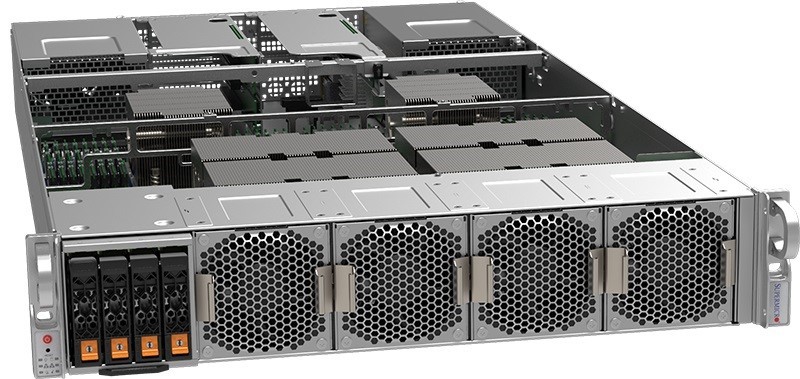The new Universal GPU server allows customers to choose the best CPUs, GPUs, and switch configurations for their applications and workloads, including dual-processor configurations using either the 3rd Gen Intel Xeon Scalable processor or the 3rd Gen AMD EPYC™ processor. The Universal GPU system enables system administrators to standardise HPC/AI systems in their clusters for the desired workloads on a single platform that is both versatile and flexible. This unique system has been optimised for various GPUs, including the newly announced AMD InstinctTM MI200 series accelerators and NVIDIA A100 GPUs. Supermicro systems, such as the SuperBlade® and BigTwin® systems, are optimised for HPC applications where density, scalability, and power savings are critical. The Universal GPU server with AMD InstinctTM, MI200 series accelerators, will be showcased in Supermicro's SC'21 booth, #1117.
"Supermicro is committed to delivering complete IT Solutions composed of advanced HPC clusters for customers that outpace industry standard lead times leveraging our newly expanded US and Taiwan manufacturing facilities," said Charles Liang, President and CEO of Supermicro. "We can now deliver large numbers of liquid-cooled clusters that use state-of-the-art computing technologies, allowing customers to get up and running quickly, resulting in reduced costs. With our Made in the USA initiative, plus other programmes, customers can design optimised HPC and AI systems for their exact workloads. In addition, the upcoming Universal GPU system will provide customers a variety of complete systems with a choice of the CPU, GPU, and switch technologies."
While Supermicro continues to design the most efficient air-cooled systems, liquid cooling is becoming a necessary technology for high-performing servers, such as the Supermicro SuperBlade® and GPU servers containing the latest CPUs and GPUs. The new Supermicro manufacturing facilities are equipped to manufacture entire liquid-cooled clusters, tested at scale before customer shipment.
"We continue to work with Supermicro for some of our large-scale HPC systems for our open science projects," stated Matt Leininger, Sr. Principal HPC, at Lawrence Livermore National Laboratory (LLNL). "LLNL is a leader in investigating new computing technologies to reduce time to solve numerically intensive applications. We look forward to a continued relationship with Supermicro."




